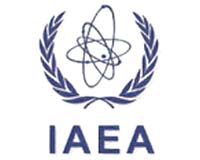 |
Vienna (AFP) Sept 16, 2010 Arab states refused Thursday to drop plans to chide Israel over its assumed nuclear arsenal at a UN nuclear conference next week, despite US suggestions that such a move would jeopardise Middle East peace talks. "The Arab Group urges to keep the item 'Israeli nuclear capabilities' on the agenda of the general conference and ... will submit a draft resolution" to te assembly next week, Sudan's ambassador to the International Atomic Energy Agency Mahmound El-Amin said, speaking on behalf of 22 Arab states. "The Arab Group requests the IAEA member states to support the draft resolution and vote in favour of it." El-Amin made the statement to a closed-door session of the IAEA's 35-member board of governors which is preparing for the organisation's 54th annual general conference next week. Earlier, the United States and the European Union had pressed Arab countries to withdraw their resolution -- wnich calls on Israel to sign up to the nuclear Non-Proliferation Treaty -- so as not to jeopardise Middle East peace talks. Washington even flew in President Barack Obama's top nuclear advisor, Gary Samore, to Vienna earlier this week to try and persuade Arab nations to drop their plans. The IAEA, which is investigating both Iran and Syria for alleged illicit nuclear activity, used "double standards" when dealing with Israel and a recent report by agency chief Yukiya Amano on the matter was "weak and disappointing," El-Amin argued. It was "devoid of any substance and not up to the typical level of the agency's reporting" and that was why the Arab countries would not drop their resolution. Brussels and Washington believe that zeroing in on the Jewish state would jeopardise a proposed conference in 2012 on the creation of a Middle East free of weapons of mass destruction. It could also have a negative effect on relaunched peace talks between Israel and the Palestinians. Israel is believed to be the only Middle East power to possess nuclear weapons. Every year, Arab members of the IAEA table the same anti-Israeli resolution at the watchdog's week-long general conference, which brings together all 151 IAEA member states. Last year the Arab states succeeded in having it adopted by a very narrow majority. Belgian ambassador Frank Recker said the EU was "of the view that ... singling out one country ... will not be conducive to a good atmosphere at the general conference and could only hamper the ability of the IAEA and its member states to contribute positively to the establishment of a zone free of weapons of mass destruction" in the Middle East. The EU felt the IAEA "should focus on advancing the implementation of these agreements and avoid anything which might jeopardise the progress made," Recker said. US ambassador Glyn Davies agreed. At a time when President Obama and US State Secretary Hillary Clinton were "actively pursuing Middle East peace .... now is not the time and the IAEA is not the place for this divisive resolution," Davies told reporters. It was "important that we avoid engaging here in Vienna in a very divisive, tough debate. A resolution, if it's adopted could threaten these talks, could send a very bad signal," he said. The priority was to make the 2012 conference possible and this would not happen by continuing to "bludgeon" one member state, he said, referring to Israel. "In order for 2012 to succeed all countries have to show up ... Right now there is one country that has very little incentive to do that because of the way they are being made a pariah in this process," Davies said. Obama's top nuclear advisor Gary Samore had met Wednesday with the entire Arab league "to see if we can't get them to meet us halfway and see if we can't have something positive, something consensual come out of Vienna, instead of the usual fight," the US ambassador continued. The US was hopeful that they could still persuade the Arab states to drop the issue, Davies said. "It's Thursday. The general conference starts on Monday. That can be a lifetime. A lot can happen in the next couple of days."
Share This Article With Planet Earth
Related Links Learn about nuclear weapons doctrine and defense at SpaceWar.com Learn about missile defense at SpaceWar.com All about missiles at SpaceWar.com Learn about the Superpowers of the 21st Century at SpaceWar.com
 IAEA not the place to debate Israel's nuclear status: US
IAEA not the place to debate Israel's nuclear status: USWashington (AFP) Sept 15, 2010 The International Atomic Energy Agency is not the forum to discuss Israel's possible accession to the nuclear Non-Proliferation Treaty (NPT), a senior US official said Wednesday after the IAEA asked the Jewish state to join. "Israel has fully cooperated with the IAEA," and "we believe there is really no basis for a debate at the IAEA," said State Department spokesman Philip Crowley, adding t ... read more |
|
| The content herein, unless otherwise known to be public domain, are Copyright 1995-2010 - SpaceDaily. AFP and UPI Wire Stories are copyright Agence France-Presse and United Press International. ESA Portal Reports are copyright European Space Agency. All NASA sourced material is public domain. Additional copyrights may apply in whole or part to other bona fide parties. Advertising does not imply endorsement,agreement or approval of any opinions, statements or information provided by SpaceDaily on any Web page published or hosted by SpaceDaily. Privacy Statement |